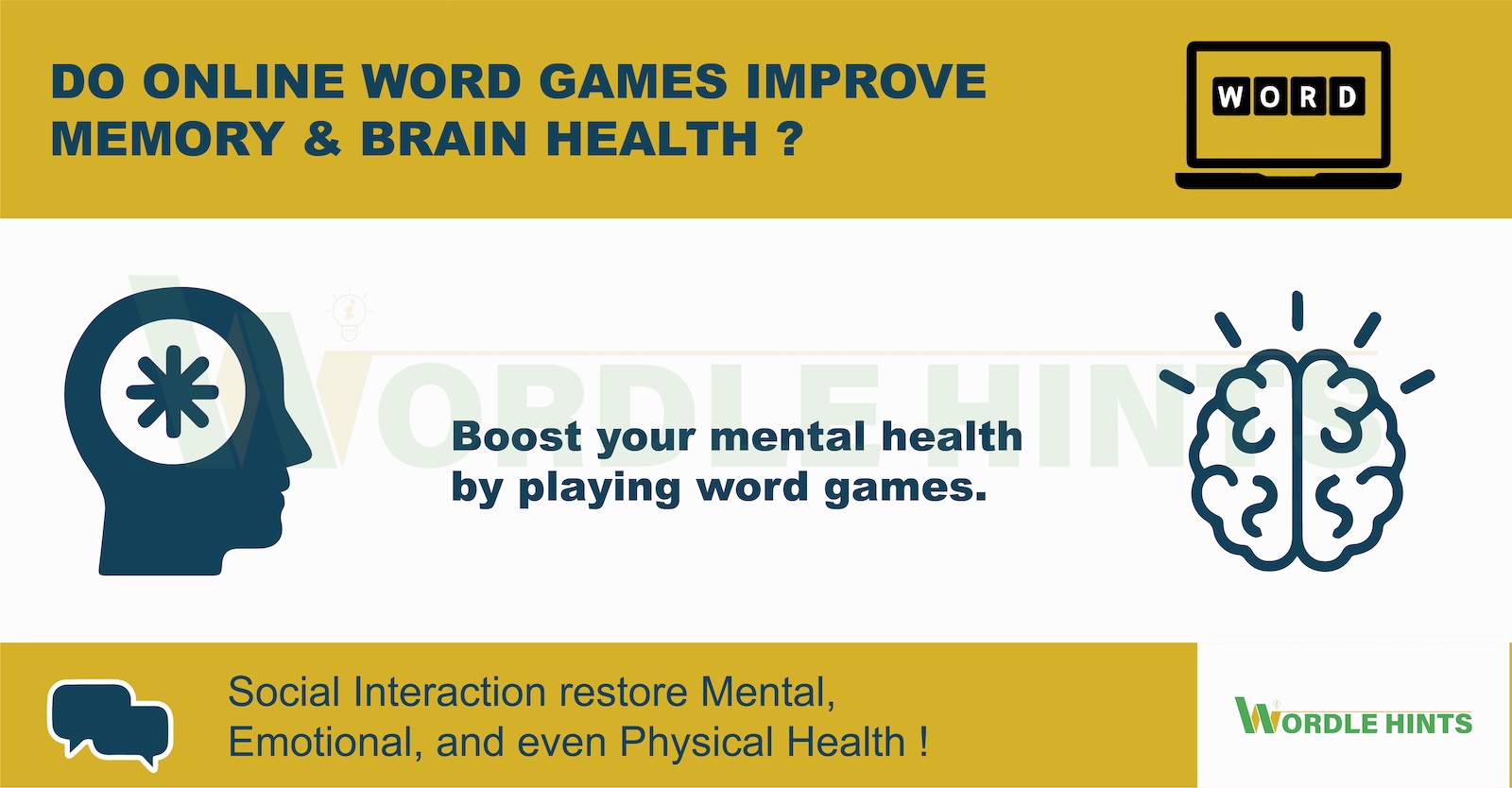Online word games can help improve memory. These games promote recall, language fluency, and focus through daily mental stimulation. Several studies, including one from the University of Exeter, link daily puzzles to improved cognitive function. Games like Wordle and crosswords provide daily mental stimulation. This is especially beneficial for older adults seeking to maintain memory.
What Memory Skills Do Word Games Build?
Word games actively engage multiple types of memory including recall, recognition, and retention. We use memory to find and place words. Games like crosswords or Wordle ask us to remember spelling and meanings. This supports short-term and long-term memory. As we match patterns, we train our brains to retrieve words faster.
A 2018 study from the University of Exeter found that adults over 50 who play puzzles perform better on memory tasks. This shows word games can keep minds sharp with age.
Which Brain Areas Do They Help?
Word games stimulate regions of the brain responsible for language processing, reasoning, and attention control. Primarily, they activate the left hemisphere, which manages speech/language and logical sequencing.
Daily game-play helps train the prefrontal cortex, involved in decision-making. It stimulates hippocampus, which plays a role in memory formation. These games help build working memory, which is the kind we use to follow steps or hold ideas in our head. We think about word clues and hold parts of words while we solve. That’s a memory workout.
Are Word Games Better for Some Age Groups?
Word games have cognitive benefit for all age groups, though the impact varies by developmental stage. Children learn new words and spelling patterns. Adults benefit in the form of improved focus and mental agility. Older adults experience significant memory preservation, especially when word games are played consistently.
According to the Cleveland Clinic, word games are effective when they present a challenge. We must make the effort. That way, our brains stay active and engaged.
“If you enjoy them and they’re giving you a challenge, then it’s really serving you a good purpose in terms of supporting your brain health for life.”
How Much Time in a Day Makes a Difference?
10 to 15 minutes of daily gameplay is effective. Quick sessions help us stay consistent to strengthen memory. Studies suggest that regular brain engagement is more effective than longer random sessions, much like exercise routines. Simple habits, such as starting your morning with Wordle or solving a crossword during a lunch break, can steadily improve word retrieval speed and mental flexibility. Over time, our brain adjusts and gets faster at word finding and recalling.
Do Online Games Work Better Than Paper?
Both digital and paper word games offer similar memory benefits. Digital games are faster and often offer hints. Tracking progress is easier. Paper word games may slow us down. On the contrary the same slowing encourages deeper concentration and fewer distractions.
The key is regular mental effort. The benefit comes from solving, thinking, and remembering words whether on screen or paper.
Are There Proven Studies or Examples?
Yes, many studies such as from International Journal of Geriatric Psychiatry and Bronx Aging Study show show cognitive gains from word games. A 2019 study in International Journal of Geriatric Psychiatry analyzed 19,078 adults aged 50-93. It found that more frequent word‑puzzle use correlated strongly with better cognitive test scores.
The Bronx Aging Study followed older adults over years and found that regular crossword use delayed onset of accelerated memory decline by about 2.5 years. Therefore, Games like Wordle, Boggle, and Wordscapes offer varied difficulty and daily practice. Wordle reinforces memory through repeated exposure to word patterns. Reviewing past Wordle answers also reinforces memory by helping players remember patterns and rare words.
How Do We Use Word Games for Brain Care?
We can care for brain health by regularly playing word games. Aim for daily sessions of 10 to 15 minutes. Gradually increase difficulty to keep the brain in challenge.
Rotate games like:
- Wordle
- Scrabble
- Boggle
- Wordscapes
- New York Times Crossword
Track your progress. Try harder puzzles. Try a mix of paper-based puzzles and app-based games for variety and accessibility. Cleveland Clinic says that combining word games with physical activity and good sleep improves overall brain health.
Where Can You Find Help with Online Word Games?
Use tutorials and hints for each game. For example, using Wordle hints greatly improves your daily game streak and keeps you motivated to play more every day.
Top Benefits of Word Games
The following are the major benefits of word games in the context of brain health:
- Boost short-term memory.
- Improve focus and attention.
- Expand word knowledge.
- Strengthen recall speed.
- Support reasoning and logic.
Comparison Table: Word Games vs Other Brain Activities
| Feature | Word Games | Sudoku | Video Games |
|---|---|---|---|
| Memory Boost | ✅ | ❌ | ✅ |
| Vocabulary Growth | ✅ | ❌ | ❌ |
| Language Processing | ✅ | ❌ | ❌ |
| Quick Play (≤10 mins) | ✅ | ✅ | ❌ |
| Social Play Options | ✅ | ❌ | ✅ |
Key Takeaways
- Word games train memory, focus, and word recall.
- 10-15 minutes daily is enough to boost brain power.
- All ages benefit, but seniors may gain the most.
- Digital and paper games both help if they challenge us.
- Studies support word games as part of healthy aging.
FAQ
Yes, they help recall and focus.
They support thinking and memory.
Daily play shows the best results.
Yes, they learn words and patterns.
Both types show equal brain benefits.

